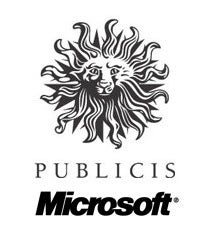 Here’s today’s AdExchanger.com news round-up… Want it by email? Sign-up here.
Here’s today’s AdExchanger.com news round-up… Want it by email? Sign-up here.
Publicis Upfront With Microsoft Falls Behind
As part of the agreement to buy Razorfish from Microsoft, Publicis agreed to a big media commitment through Microsoft. According to an article in Ad Age, it appears Publicis isn’t going to keep the commitment and may end up paying a cash penalty to make up for it. Given the conundrum, Ad Age’s Kunur Patel writes, “Does the model of guaranteeing client dollars in lump sums work in digital media, where ad spending is still ruled by quarter-to-quarter and comparatively tiny budgets? Add in looming penalties, and are clients’ best interests in jeopardy?” Read more.
News Publishers Using Data: Use Cases Galore
Newspapers are beginning to use the treasure trove of online data at their disposal to decide what gets covered and what doesn’t according to an article by Jeremy Peters of The NY Times. Regarding online data, Peters write, “Such data has never been available with such specificity and timeliness. The reader surveys that newspapers relied on for decades took months to produce, often leaving editors with stale data.” Drink the digital Kool-aid, news publishers! WaPo and The WSJ chime in as does the NY Times. Even VisualDNA’s personality quiz technology on the LA Times site – which helps with user content matching – gets a shout-out. (source: @bradterrell)
HTML5 And Consumer Privacy
Comparing it to recent concerns around the use of Flash cookies, Ars Technica’s Jacqui Cheng notes the use of a Safari database for ad targeting purposes. Cheng says, “…Some of our readers drew our attention to something called RLDGUID, a Safari database that has been popping up more and more on iOS devices. (…) The company behind this database, Ringleader Digital, is basically using some of the modern HTML5 capabilities of mobile browsers to perform the same tasks as a traditional cookie, but out of sight of most users.” Cheng claims that users can be tracked forever on their device using this method. Ringleader defends itself in the piece. Read more.
MediaMind Announces Update
MediaMind (formerly Eyeblaster) announced an update to its ad serving and campaign management tools. According to the release, The company says it has added three primary pieces of functionality “to optimize media planning, buying and targeting” called Smart Planning, Smart Versioning, Smart Trading. MediaMind describes Smart Trading as “…advertisers can flow effortlessly between ad server and exchange-traded buys with one log-in. One unified management system allows advertisers to increase their effective reach and frequency using combined data for premium and non-premium inventory.” Read more.
Reviewing The Google Network
Google has re-vamped its branding and positioning for its display advertising in recent months and Hollis Thomases looks inside the Google Display Network (GDN) updates on ClickZ. Thomases writes, “Curious to learn if the GDN is anything more than the old Content Network with a new name, I spoke with Bruce Falck, Head of GDN. Does it surprise you to know the GDN’s ad mix breakdown runs 60-to-40, text versus display? Four years ago, it would have been closer to 100 percent text ads.” Read more. Meanwhile, on eConsultancy, Ian Howie provides his “Three reasons why you should use Google’s Display Network.” One reason is the ability to target above the fold inventory says Howie. Read the others.
Your Options Are Icing, At Best
Following up on a Twitter-sphere conversation, GRP Partners Mark Suster provides his two cents on the positioning of stock options for employees and says that unless you’re a founder or very senior management, options should not be a motivating factor for joining a company. He writes, “There is nothing worse than an employee who wakes up one day feeling duped or a sense of mismatched expectations. Then everybody loses.” But… there is a remote possibility you can win the options lotto. Read more.
Social Display Ads
Display ads pop-up in an article about how ad agencies will work with social media going forward. Mashable’s Jolie O’Dell quotes creative specialist Jesse Thomas about Facebook’s display ad system, “The idea of ‘liking’ an ad is genius… The idea of advertising a Page in Facebook via the Facebook ad engine and being able to access special advertising powers is nothing short of revolutionary.” Read more.
August M&A
Investment bank Petsky Prunier has released its August summary of mergers and acquisitions in the digital media sector for August 2010: “A total of 57 deals worth approximately $2.6 billion were announced in August 2010, up 30% in volume and 100% in value from August 2009. On a month-over-month basis, transaction volume and value was down 20% and 26%, respectively from July 2010.” Read more. And, download the summary (PDF).
TV Not (As Much Of) A Necessity
The New York Times’ Alex Midlin notes that recent Pew Research Center data reveals people just don’t need TV as much as they used to. “The proportion of people counting a TV as a must-have has shrunk by one third since 2006, when 64 percent of Americans said they needed one.” Digital devices continue to intrude. Read more.
Federated And Extensible
What do those words really mean? (AdECN has its Federated platform, after all. You need to know federated.) Angel investor and Hunch CEO Chris Dixon breaks down the terminology and begins, “One of the most important developments of the web 2.0 era is the proliferation of full featured, bidirectional APIs. APIs provide a way to ‘federate’ web services from a single website to a distributed network of 3rd party sites. Another important web 2.0 development is the proliferation of web Apps (e.g. Facebook Apps). Apps provide a way to make websites ‘extensible.'” Read more.
Data Vizgasm
Basement, Inc. prez/creative director Doug Schumacher points to a blog post a few months back with “killer” examples of data visualization and infographics. Data viz junkies, have at it.
Buying Across Supply Sources
Last week, AdShuffle announced that it has launched the AdShuffle Exchange which enables advertisers to acquire display media from exchanges and publisher-side aggregators. From the release, the company says it allows buyers to “buy ad inventory from multiple vendors quickly and easily without ad serving fees, required minimums and separate contracts for each new ad placement.” Read more.
Are You IP Targeting?
Goodway Group has selected Digital Element for its I.P. targeting services according to a release which adds that Goodway Group “has integrated NetAcuity Edge’s ZIP code data within its ad servers to offer deeper and more accurate IP-based targeting to its clients.” Read more.













